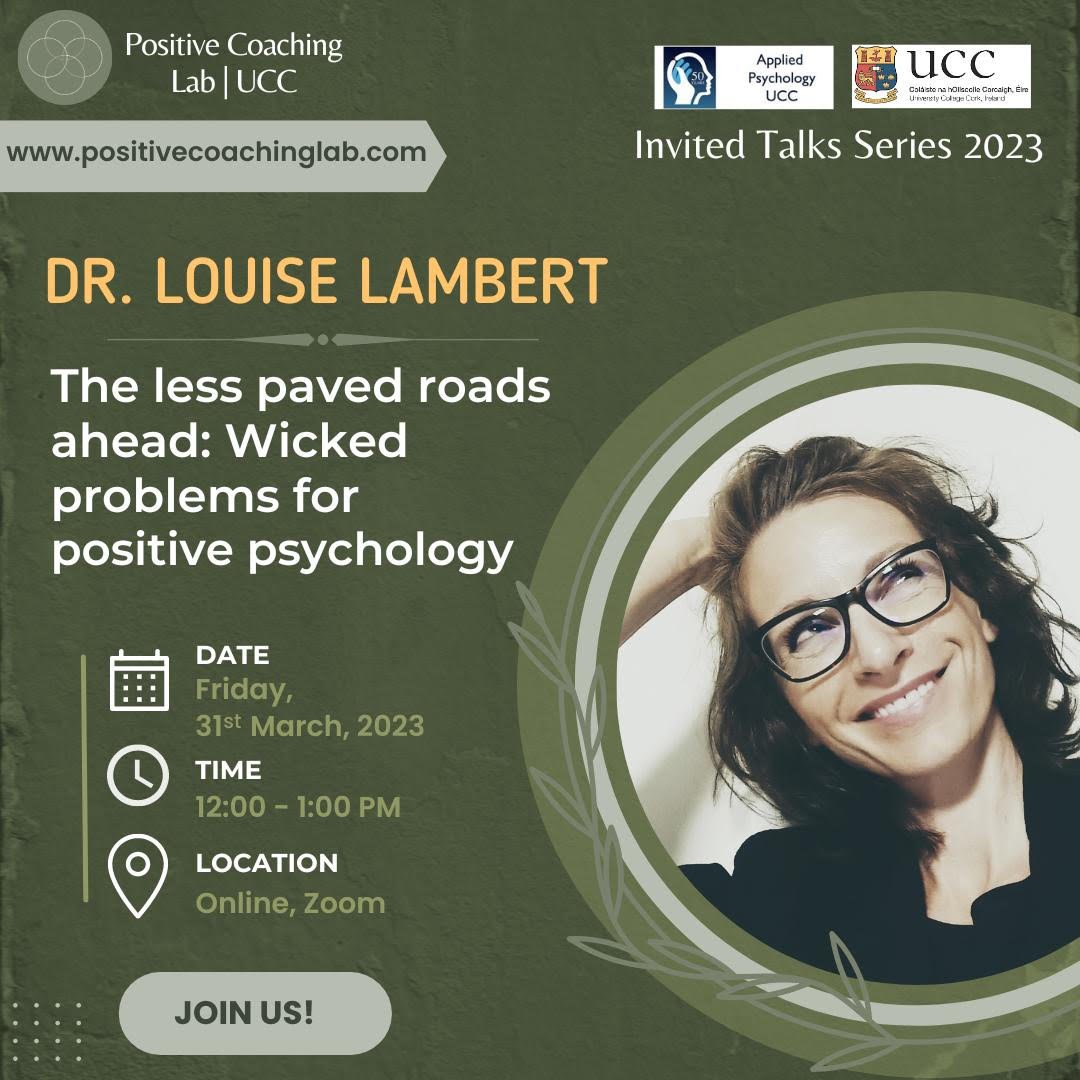The Less Paved Roads Ahead: Wicked Problems for Positive Psychology
Friday, March 31st
12:00-1:00pm (Irish Time)
Virtual Event
About This Event
Positive Psychology has evolved greatly over the years, with iterations 2.0 and 3.0 reflecting the changing landscape of more sophisticated research and practice. Rather than proposing new directions in research, this presentation lays out four areas of interest that are growing and in need of attention for a better world.
Climate change is not stranger to anyone and yet as the largest single threat to humanity looms, positive psychology has had little to say. Might researchers explore a way forward? Tragic optimism can be a powerful driver for climate action, but must be balanced with realism to avoid complacency or despair. Finding the right balance and packaging it within the realm of existing PPIs is one path.
Researchers may also want to move beyond traditional populations of study and investigate the application of positive psychology in hard-to-reach populations such as migrants and blue-collar workers. They face difficult systemic challenges and for which few interventions have yet to make an impact. The use of technology such as Chat GPT is a promising avenue for delivering positive psychology interventions at scale; how it and other artificial intelligence based technologies can be used to enhance existing interventions or develop new ones that leverage their capabilities will be key going forward.
Finally, positive psychology researchers must move beyond individual level interventions and focus on (re)building social cohesion, social connections, and a sense of belonging, all essential for wellbeing.
Audience feedback will be requested.
Dr. Louise Lambert
Dr. Louise Lambert has worked as a university professor in positive psychology, making science actionable by applying positive psychological practice towards the attainment of greater wellbeing in workplaces. As wellbeing is a shared task, some of these actions are for employees, but many target managers and the micro-actions they can build into their days to make employees feel seen, heard and as though they belong. She also considers bigger-ticket policy items that help embed wellbeing more concretely. She has published several studies in the field, largely all to do with the efficacy of positive psychology interventions in the Middle East/North Africa region. Some of these studies were featured in RAND Corporation Reports as well as the World Happiness Reports. She is the Editor of the Middle East Journal of Positive Psychology and author of the first regional textbook in positive psychology (Springer, 2019) and general psychology (Cambridge, 2018).
For more, see https://happinessmatters.org or connect with her on LinkedIn.
Make sure to check out the Middle East Journal of Positive Psychology as well!
